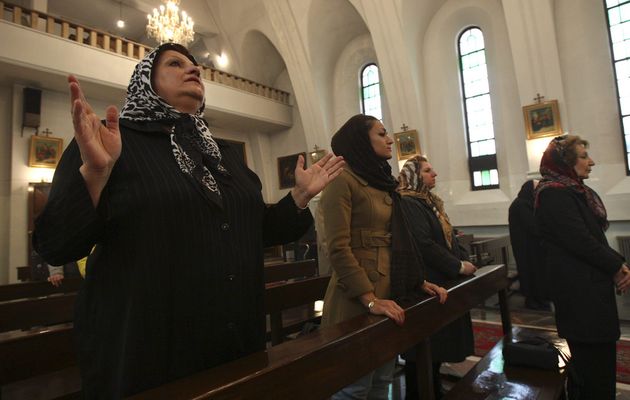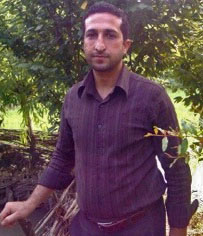Iranian converts accused of “acting against national security” await verdict
The government often uses this accusation against converts instead of the charge of apostasy, in an attempt to avoid international scrutiny.
TEHRAN · 05 JULY 2017 · 09:53 CET

Four Iranian converts facing the possibility of up to six years in prison on charges of “acting against national security” are awaiting a verdict expected to be issued soon after numerous delays, according to human rights activists.
During a June 14 hearing to hear the verdict in their case, pastor Yousef Nadarkhani, Mohammadreza Omidi, Yasser Mossayebzadeh and Saheb Fadaie were informed in a Revolutionary Court in Tehran that a judge would issue a verdict in 20 days, according to Middle East Concern, a religious freedom advocacy group.
Judges hearing the case were expected to issue a verdict during two previous hearings on Dec. 14, 2016 and Feb. 9. After the original trial on Oct. 15, 2016 in Rasht, the case was transferred to Tehran after the Rasht court could not reach a verdict.
A CATCH-ALL CHARGE
“Acting against national security” is a catch-all charge often used by the Iranian government to punish different types of religious and political dissent.
The government often uses it against converts instead of the charge of apostasy, according to freedom of religion advocates, in an attempt to avoid international scrutiny.
A ruling is also expected on an appeal filed by Omidi, Mossayebzadeh and Fadaie against a sentence of 80 lashes each for drinking wine during a Communion service.
JUDGE SALAVATI
Of particular concern to human rights activists was the presence in the courtroom of Abolghasem Salavati, a judge for the 15th Branch of the Revolutionary Court, during the most recent hearing. Salavati announced that “Christians make foolish claims”, according to Christian Solidarity Worldwide (CSW).
Salavati is “notorious for carrying out miscarriages of justice,” especially in high-profile trials involving political activists and ethnic and religious minorities, according to CSW.
“He is also known for delivering lengthy prison sentences and ordering that defendants be lashed,” a CSW press statement read.
“In many cases, he has ordered the execution of defendants. His unexpected intervention may indicate that the presiding judge is under pressure from the Secret Police to pronounce a pre-determined verdict and deliver a harsh sentence.”
CSW Chief Executive Mervyn Thomas said in a statement that Salavati’s presence in court was inappropriate, and that the charges against the four Christians were “spurious.” He called on the Iranian government to drop all charges against them.
“It is both puzzling and troubling to hear of Judge Salavati’s unwarranted intervention in the trial of these four Christians, which was clearly designed to intimidate”, Thomas said.
SENTENCED FOR TAKING COMMUNION
“Also worrying is the fact that a derogatory statement about a religion that is recognized in the national constitution was uttered in open court by someone who is responsible for dispensing justice.”

It was the second time Fadaie and Omidi have been sentenced to flogging for taking Communion.
Although Christians are allowed to consume alcohol in Iran, Muslims are not. As converts from Islam, by law the three men are still considered Muslim since conversions away from Islam are not recognized in Iran.
On Oct. 25, 2016, attorneys for the three Christians filed an appeal to have their case overturned. Ten days earlier, they and Nadarkhani were tried on charges of “acting against national security.”
RAIDS AGAINST CHRISTIANS
As part of a larger crack-down on house churches in Iran in 2016, the country’s internal security apparatus, VEVAK, conducted a series of raids against at least 10 Christian-owned homes.
Officials temporarily detained Nadarkhani and his wife, Fatemeh Pasandideh, on May 13, 2016, but then released them. Authorities took Mossayebzadeh, who was also at one of the houses, into custody.
VEVAK agents later summoned Omidi and Fadaie to their office by phone and then arrested them in connection with the raids, according to CSW.
Weeks later, Mossayebzadeh and Fadaie were released each on the equivalent of a $33,000 bond, Mossayebzadeh on May 28, 2016 and Fadaie on May 29, 2016.
Omidi remained in detention until officials released him June 7, 2016, also on a $33,000 bond. Court officials on July 24 summoned Nadarkhani to court, charged him with crimes against national security, ordered him to produce a bond of $33,000 and released him.
In 2010, the Iranian government charged Nadarkhani with apostasy and sentenced him to death.His Christian faith had been discovered after he went to his children’s school to question Iran’s compulsory Islamic religious education requirement.
Eventually court officials acquitted him of the charges, and in September 2012, he was released from prison.
He was found guilty of evangelizing, however, and three months later was ordered back to prison on Dec. 25, 2012. Nadarkhani was released Jan. 7, 2013.
GROWING IN THE MIDST OF PERSECUTION
In Christian support organization Open Doors’ list of countries where it is most difficult to be a Christian, Iran had a score of 85 out of 100 in the 2017 World Watch List, leaving it ranked eighth out of 50.
Various aid and rights groups affirm that the underground church is growing in Iran in spite of the crack-down.
As many as 450,000 Iranians are worshipping Christ within Iran’s borders, according to Open Doors, and other organizations believe the figure could be as high as 1 million in the country of 80.3 million.
Published in: Evangelical Focus - world - Iranian converts accused of “acting against national security” await verdict
